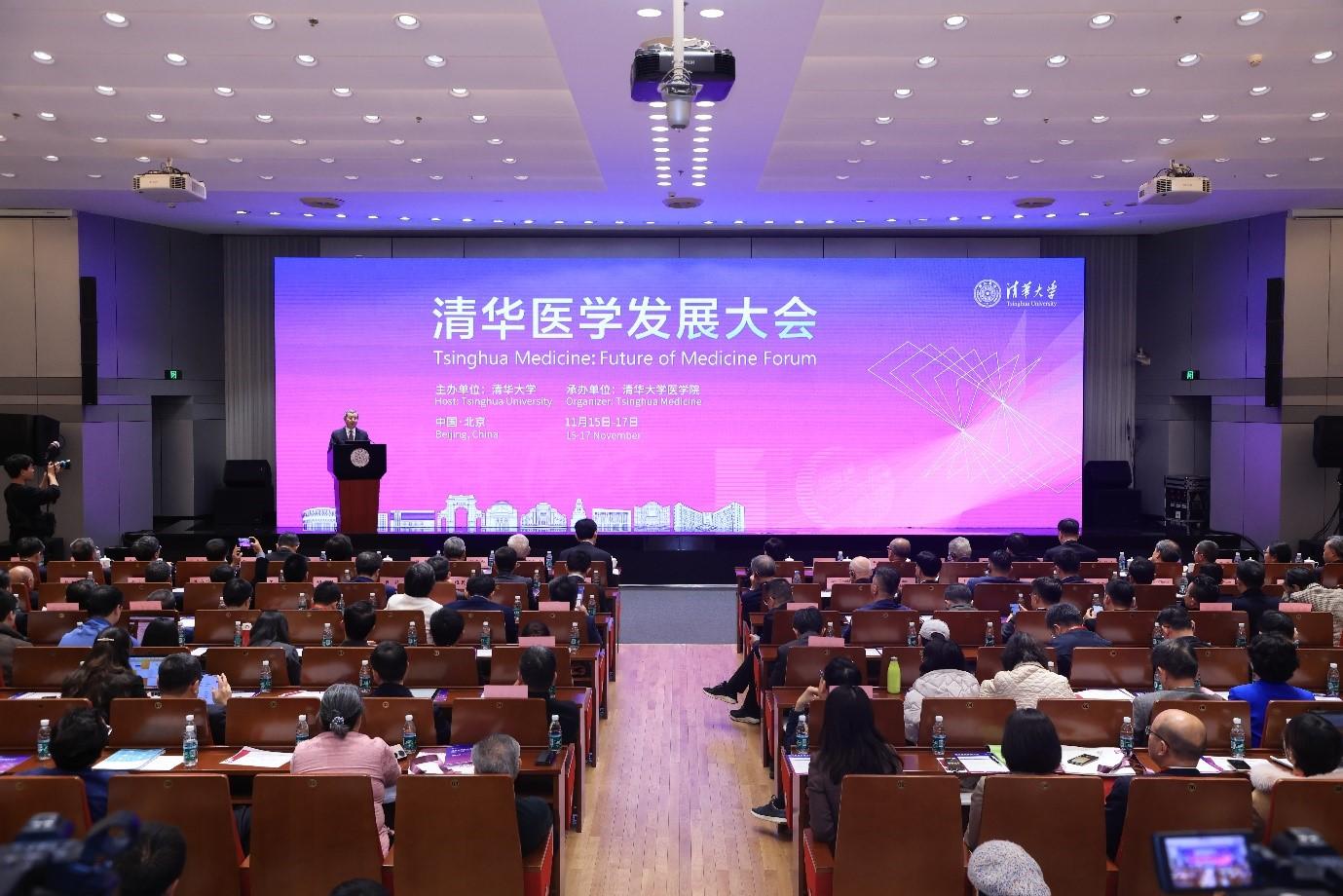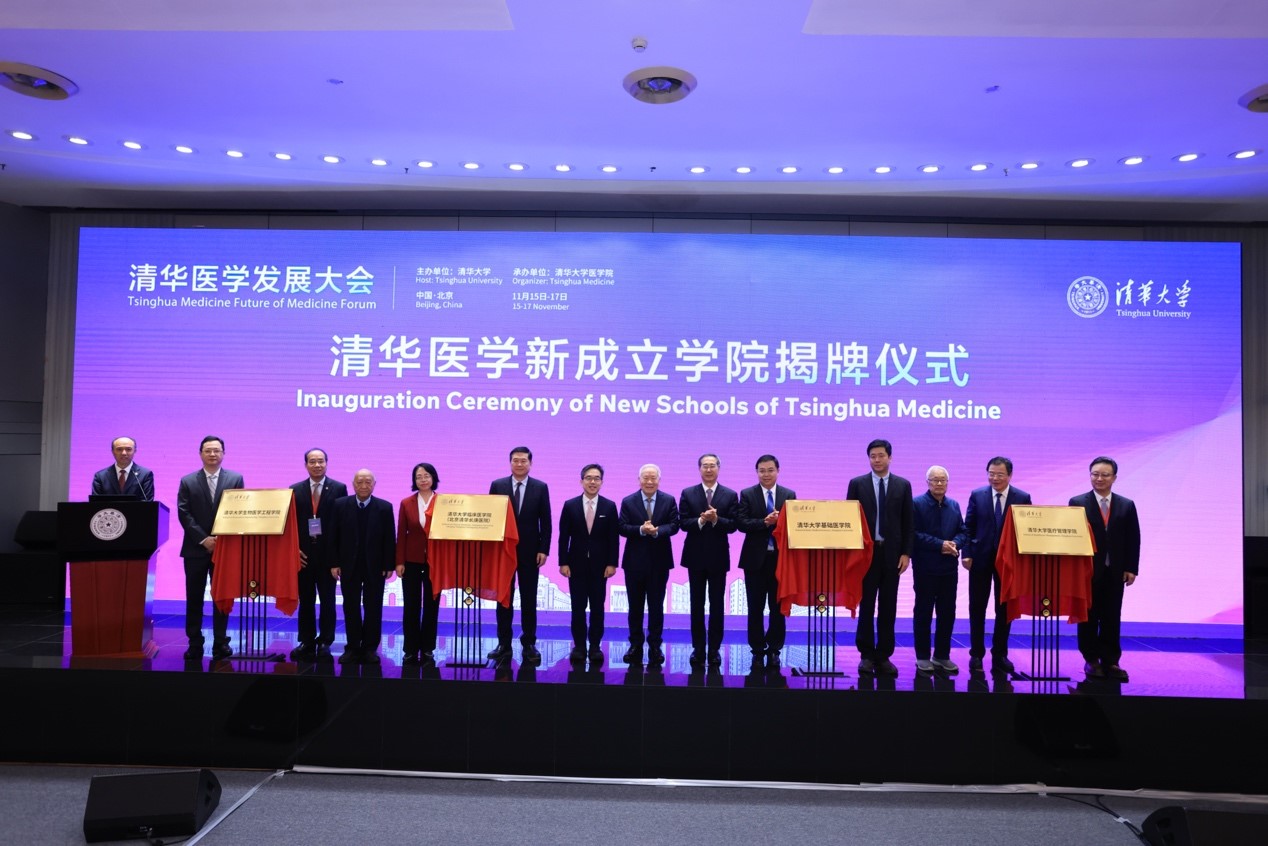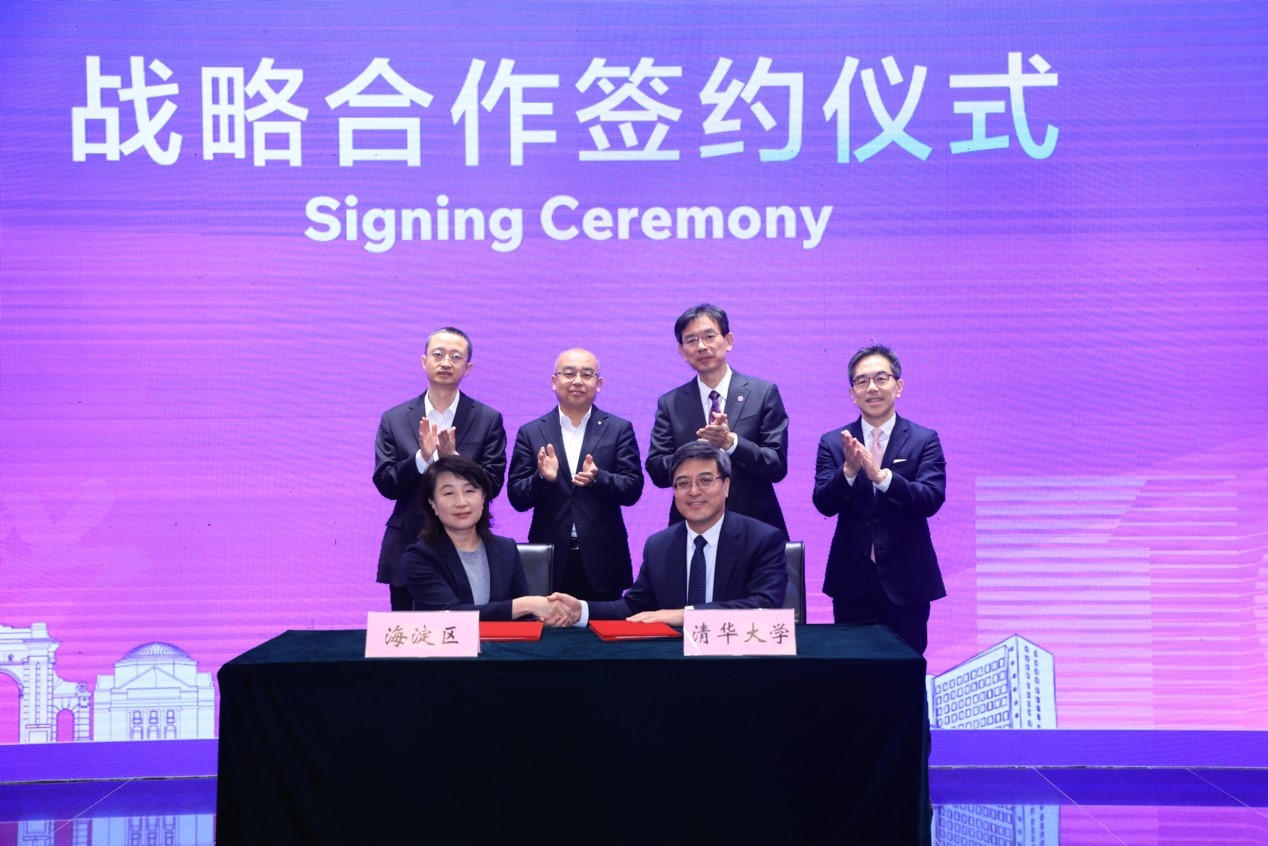
 0 Comment(s)
0 Comment(s) Print
Print E-mail China.org.cn, November 17, 2024
E-mail China.org.cn, November 17, 2024Tsinghua University, one of China's top universities, announced initiatives Friday to advance high-quality medicine development during the Tsinghua Medicine: Future of Medicine Forum, themed "Innovating Medicine and Healthcare for a Shared Future."

The Tsinghua Medicine: Future of Medicine Forum is held at Tsinghua University in Beijing, Nov. 15, 2024. [Photo courtesy of Tsinghua University]
The university launched several new specialized schools at Tsinghua Medicine, and also signed a strategic cooperation agreement with Beijing's Haidian district to develop a new medical campus.
The newly launched divisions include the School of Basic Medicine, the School of Biomedical Engineering, the School of Medical Management, and the School of Clinical Medicine (Beijing Tsinghua Changgung Hospital).
The new medicine campus will be a high-level facility incorporating Tsinghua Medicine, a research-centric hospital, and national-level research platforms.
Chen Zhu, vice chairperson of the Standing Committee of the 13th National People's Congress and a member of the Chinese Academy of Sciences (CAS), said in an opening speech via video that as the scientific backbone of health care services, medical advancements play a vital role in safeguarding public health. From basic research to clinical applications and from disease prevention to health management, every breakthrough in medicine has profoundly impacted human health. He encouraged Tsinghua University to pursue innovation, prioritize people's health needs, and promote collaboration and resource sharing with the international medical community from a global perspective.
Zeng Yixin, vice minister of the National Health Commission (NHC) and a member of the CAS, highlighted that China had outlined integrated reforms of institutions and mechanisms pertaining to education, science and technology, and talent, as well as implementing a health-first strategy. In recent years, Tsinghua University has provided rich resources for cultivating medical talent for the new era and has produced a series of innovative medical achievements, becoming a key influence in China's medical development. He said the NHC will continue to support Tsinghua Medicine's reform and development and encouraged Tsinghua to leverage the advantages of a comprehensive university to promote interdisciplinary integration and contribute even more to the Healthy China initiative.

An inauguration ceremony for new schools of Tsinghua Medicine takes place during the Tsinghua Medicine: Future of Medicine Forum at Tsinghua University in Beijing, Nov. 15, 2024. [Photo courtesy of Tsinghua University]
Xiong Sihao, vice minister of education, said that this forum, focusing on exploring ways to provide high-quality medical education and advance medical development, is particularly relevant as the country steps up its efforts in these areas. He expressed hope that Tsinghua will cultivate more top medical talent with strong ethics and innovative skills, strengthen discipline development, promote international medical collaboration and lead reforms in medical education and systems to contribute to Tsinghua's solutions to major medical challenges in China and the world.
Li Luming, president of Tsinghua University, said Tsinghua remains committed to national development while strengthening its medical programs as part of its mission to become a world-class university. Li, who is also a member of the CAS, said the university is advancing medical technology innovation and artificial intelligence applications in medical education. Li expressed hope that Tsinghua Medicine will cultivate leadership in medicine, promote interdisciplinary development, achieve high-level scientific innovations and enhance health service capabilities.
During the forum, Victor Dzau, president of the U.S. National Academy of Medicine and a foreign Chinese Academy of Engineering (CAE) member, received an honorary professorship from Tsinghua University.
During the keynote presentations, Wong Tien Yin, vice provost of Tsinghua University, senior vice-chancellor of Tsinghua Medicine, and an elected foreign member of the U.S. National Academy of Medicine, outlined the development, unique characteristics, and key achievements of Tsinghua Medicine in a presentation titled "Tsinghua Medicine: Developing a Future-focused, High-quality Strategy for Medicine." He also shared the vision of establishing Tsinghua Medicine as a world-leading center for talent cultivation and research innovation that drives progress in human medicine.
Dong Jiahong, dean of the School of Clinical Medicine (Beijing Tsinghua Changgung Hospital), chair of the Academic Committee of Tsinghua Medicine, and a member of the CAE, delivered a presentation titled "Tsinghua Practices in Building a Chinese Modern Healthcare Services System." He highlighted the achievements of Beijing Tsinghua Changgung Hospital in pioneering medical reforms, exploring public hospital reform, establishing a high-level academic medical center, and building an integrated health care consortium, demonstrating Tsinghua's contributions to the development of a modern Chinese health care system.

Tsinghua University signs a strategic cooperation agreement with Beijing's Haidian district during the Tsinghua Medicine: Future of Medicine Forum at Tsinghua University in Beijing, Nov. 15, 2024. [Photo courtesy of Tsinghua University]
In his presentation "The Future of Medicine: From Bench to Bedside to Population to Society," Dzau addressed global challenges in health care and discussed how data science and artificial intelligence can play critical roles in tackling shared issues.
The three-day event features seven specialized sub-forums covering medical education, advances in oncology, infectious diseases and immunity, aging and degenerative diseases, drug development, biomedical engineering and health care management.
Go to Forum >>0 Comment(s)